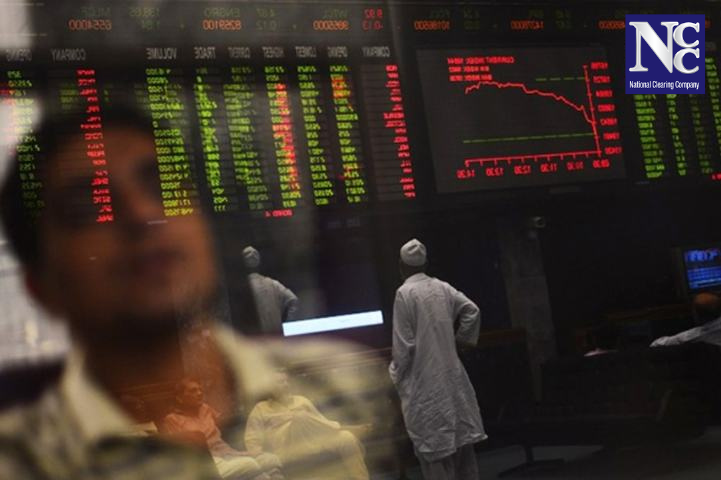PSX has become the third-worst performing stock market in the region due to the unsteady political and economic conditions. Surprisingly, PSE won the title of Asia’s best-performing stock market in August 2020.
The KSE-100 index is delined 2,427 points during the first 9 months and concluded at 44,929 points on 31st March. As a result, the Pakistan stock exchange became the third poorest performing Asian market.
The latest data suggest that the Pakistan stock exchange has become the second-worst performing marketing in Asia, just behind Sri Lanka, during the current fiscal year. PSX has plunged almost 31% in dollar terms in the current year, as per Arif Habib Limited (AHL).
Stock market investors saw the wipeout of 16.27% (Rs. 1.35 trillion) of investment at the Pakistan stock exchange. Market capitalization slumped to Rs. 6.95 trillion on Thursday, compared to the peak of Rs. 8.29 trillion in June 2021.
However, the investors were optimistic about the upcoming budget statement. It helped keep the Pakistan stock exchange positive and conclude the week in the green zone on Friday.
The petroleum refinery sector incurred the worst hit in terms of losing market capitalization. The sector’s capitalization split to Rs. 66 billion in March, compared to Rs.146.56 billion at the end of June 2021.
After the petroleum refinery sector, the cement sector suffered a loss of 24% of market capitalization. The automobile assemblers’ capitalization went down 13% during July-Mar FY22, according to the Pakistan Economic Survey 2021-22.
The latest data has indicated that the Pakistan stock market is in worse shape than previously thought. Over the past year, the benchmark index has fallen by 13.25% (6,376 points).
On Friday, the KSE-100 index saw a rise in stock prices as investors expected a positive budget. There was an intraday low of 41,715.05 points and a tight range of movement in the index as it continued.
Foreign investors have been far away from the PSX, regardless of the country’s economic and political situation.
According to the NCCPL, foreign investors have withdrawn a net $1.61b from Pakistan’s equity market since July 1, 2017.
Pak rupee-dollar parity has always influenced foreign investors’ departure from the domestic stock market, as the currency has depreciated sharply.
Tahir Abbas, Head of Research at Arif Habib Limited (AHL), said, “Pakistan’s economy started overheating in September 2021 and worsened after global commodity prices abnormally spiked in the wake of the reopening of the world after the Covid-19 lockdown”.
He further said, “later (since February 2022), the Russia-Ukraine conflict exacerbated the economic challenges. The super cycle of commodity prices widened the country’s current account deficit (CAD) and worsened the balance of payments crisis”.
A delay in the resumption of the IMF’s $6 billion loan program, political instability, and high petroleum product prices sent negative signals to the PSX.
The downgrading of Pakistan by the MSCI from the EMI to FMI, with effect from December 1, 2021, sparked selling pressure at the bourse.
Before a two-year low recently, the Pakistan stock exchange’s benchmark KSE-100 index closed at its highest point at 48,112 on August 23, 2021.
“The turnover of shares reached its peak in September 2021, indicating that investors were actively investing in the market. However, the market activity slowed down in February and March 2022 due to the geopolitical and domestic political uncertainty.”
The survey further reported, “Meezan Bank and Mari Petroleum share prices have positive growth. The falls in the share price of Pak Tobacco is partly explained by the negative growth of 28% in the tobacco industry. The share price of Nestle has dropped as food and personal care products companies posted modest growth of 1.2%”.
The significant development of this year in the PSX is the initial public offering (IPO). During July-March FY22, five companies issued shares through IPOs on the main board of PSX, while two companies were listed on the newly introduced Growth Enterprise Market Board.
In the budget for the 2022/23 financial year that starts on July 1, Finance Minister Miftah Ismail increased the tax rate on banks to 42% from 39%, raised capital gains tax to 15% if assets are sold within a year, and raised withholding tax to as much as 5%.
Experts said the tax increases could boost government revenues by 80 billion rupees ($393 million) in 2022/23.
“Market primarily reacted due to higher tax measures for corporates and banks introduced in the budget. Also, removing tax credit for investment in mutual funds is bearing on the market,” Saad Hashemy, CEO at BMA Capital, told Reuters.
However, he added that any positive developments over negotiations with the IMF and the FATF should help improve sentiment.
However, the IMF has expressed concerns about Pakistan’s budget, but the government is confident it can make changes to satisfy the lender.
As per the finance minister, Pakistan is looking to get a staff-level agreement with the IMF this month.
